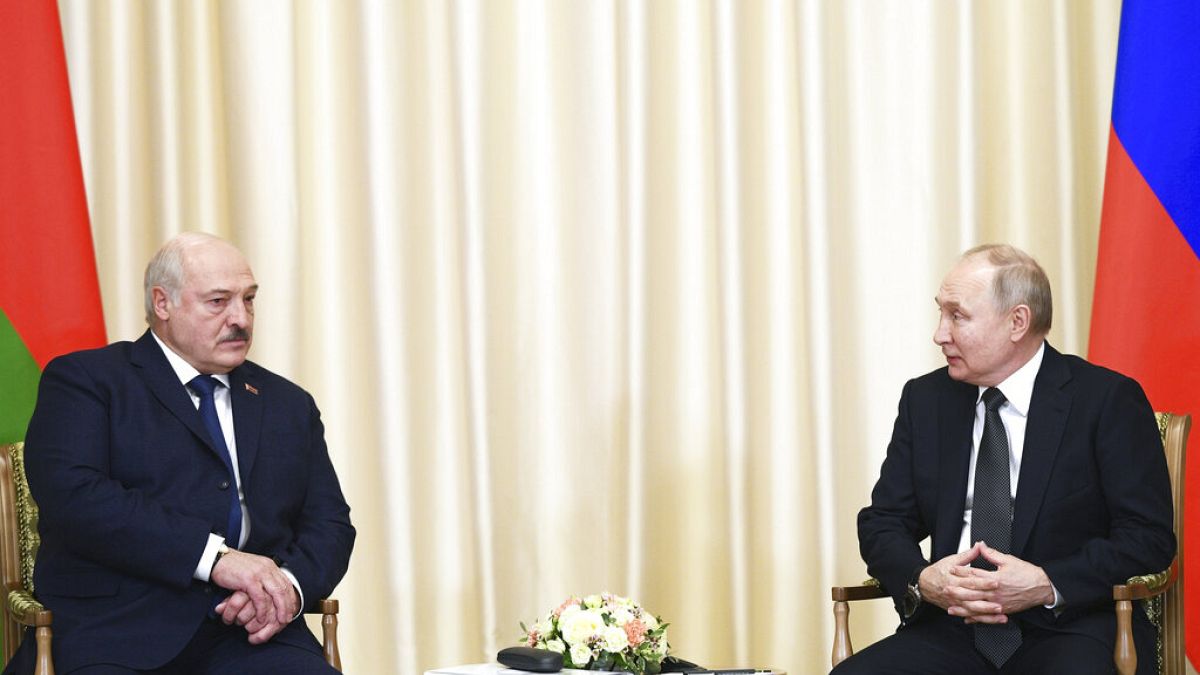In February, a leaked document showed Putin's alleged plans to annex Belarus by 2030.
Russia may try and force Belarus to move towards unity, according to the Institute for the Study of War (ISW).
In its daily briefing, the US-based analysts said: "The Kremlin will likely attempt to coerce Belarus into further Union State integration when Russian President Vladimir Putin and Belarusian President Alexander Lukashenko meet in Moscow on April 5 and 6."
It added: "Belarus may be pressured into "more integration concessions under the rubric of defending... [it] from claimed Western military and/of terrorist threats."
The governments of Belarus and Russia are staunch allies. Moscow used Belarusian territory to launch its invasion of Ukraine and is conducting military exercises in the country, sparking fears Belarus could get dragged into the conflict.
Putin and his Belarusian counterpart Lukashenko are due to meet for private bilateral discussions on Wednesday, which will "address the implementation of the Union State Treaty" through 28 different programmes from 2021 to 2023, according to the ISW.
Officials also plan to agree on unspecific "practical issues of further integration", it added, suggesting this could be in the area of intelligence sharing.
In 1999, Belarus and Russia signed the Union State Treaty, which aimed at deepening economic and military cooperation between the two.
The exact nature of the political union that could emerge remains vague and much of what is discussed is shrouded in secrecy.
Many past plans, such as adopting a common currency, have faltered and fallen by the wayside, though the Ukraine war is reinvigorating some efforts.
Minsk had previously gained independence from Moscow in 1991, following the dissolution of the USSR. Despite the strong likes between their two governments, Belarusians retain a distinct society, culture and history.
A leaked document in February purported to show Putin's alleged plans to annex Belarus by 2030. If this were the case, the EU would share an extensive border with Russia.
There is a growing divide between Belarusians and their leader Lukashenko, especially his policies towards Ukraine.
Polling by an independent Belarusian sociologist Andrei Vardomatsky found that only 11% were in favour of Belarus participating in the fighting.
In 2019, Belarusians took to the streets to protest a meeting between Putin and Lukashenko on discussing deeper integration.
Some suggested it would be a full capitulation to Moscow, allowing it to control Belarus.
Last month, Russia said it would station tactical nukes on the territory of its western neighbour.
The move sparked a fierce backlash from the EU, with the bloc's foreign policy chief Josep Borrell saying it was an "irresponsible escalation and threat to European Security".
